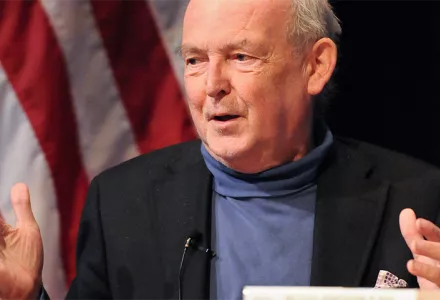At Yale University, Paul Kennedy is the J. Richardson Dilworth Professor of History, Director of International Security Studies, and Distinguished Fellow of the Brady-Johnson Program in Grand Strategy. He coordinates the ISS programs funded by the Smith Richardson Foundation.
Born in June 1945 in the northern English town of Wallsend, Northumberland, he obtained his BA at Newcastle University and his DPhil at the University of Oxford. He is a former Fellow of the Institute for Advanced Studies, Princeton University, and of the Alexander von Humboldt-Stiftung, Bonn. He holds many honorary degrees, and is a Fellow of the Royal Historical Society, the American Philosophical Society, and the American Academy of Arts and Sciences. He was made Commander of the Order of the British Empire (C.B.E.) in 2000 for services to History and elected a Fellow of the British Academy in June 2003.
Prof. Kennedy’s monthly column on current global issues is distributed worldwide by the Los Angeles Times Syndicate/Tribune Media Services. He is the author or editor of nineteen books, including The Rise of the Anglo-German Antagonism, The War Plans of the Great Powers, The Realities Behind Diplomacy, and Preparing for the Twenty-First Century. His best-known work is The Rise and Fall of the Great Powers, which provoked an intense debate on its publication in 1988 and has been translated into over twenty languages.
In 1991, he edited a collection entitled Grand Strategies in War and Peace. He helped draft the Ford Foundation-sponsored report issued in 1995, The United Nations in Its Second Half-Century, which was prepared for the fiftieth anniversary of the UN. His 2006 book The Parliament of Men contemplates the past and future of the United Nations. Prof. Kennedy’s most recent book Engineers of Victory, history through the eyes of problem-solvers during the Second World War, was published in 2013. He is currently writing a book about seapower and global transformations during World War Two.

